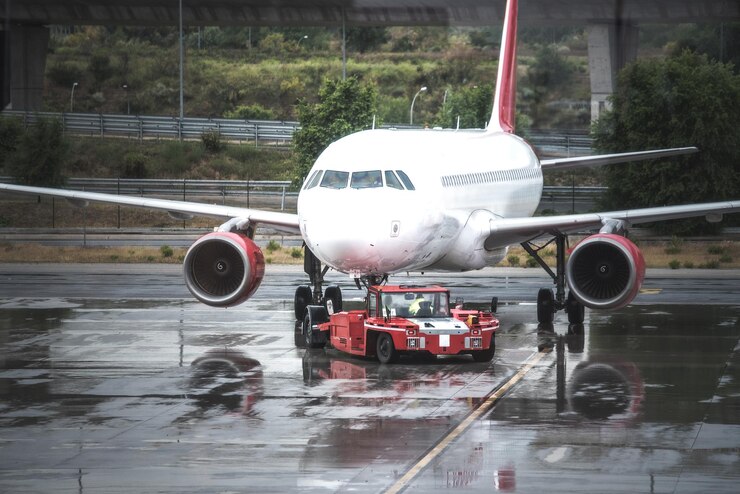The aviation industry constantly seeks innovative solutions to improve fuel efficiency, reduce emissions, and enhance engine performance. One such solution is the use of fuel additives, which play a crucial role in optimizing fuel combustion, preventing deposit buildup, and reducing maintenance costs. In this blog post, we will explore the benefits of fuel additives in aviation and how they contribute to a more sustainable and cost-effective industry.
What Are Fuel Additives?
Fuel additives, also known as fuel conditioners, are chemical compounds designed to improve the properties of aviation fuel. These additives enhance combustion efficiency, reduce carbon deposits, prevent fuel degradation, and improve overall engine performance. They are widely used in commercial airlines, private jets, and military aircraft to maintain operational reliability.
Key Benefits of Fuel Additives in Aviation
One of the primary advantages of fuel additives is their ability to optimize the combustion process. By improving fuel atomization and reducing incomplete combustion, additives help aircraft engines burn fuel more efficiently. This results in increased power output and reduced fuel consumption, ultimately leading to cost savings for airlines. 2. Reduced Carbon Deposits and Engine Wear
Over time, carbon deposits can accumulate on fuel injectors, combustion chambers, and turbine blades, leading to reduced engine efficiency and increased maintenance costs. Fuel additives contain detergents and dispersants that prevent carbon buildup, keeping engine components clean and extending their lifespan.
3. Lower Emissions and Environmental Impact
With global aviation emissions under increasing scrutiny, airlines are seeking ways to reduce their carbon footprint. Fuel additives help lower emissions by promoting cleaner combustion and reducing the formation of harmful pollutants such as carbon monoxide (CO) and nitrogen oxides (NOx). This makes them an essential tool for meeting stringent environmental regulations and sustainability goals.
4. Prevention of Fuel Degradation and Contamination
Aviation fuel is prone to oxidation, microbial contamination, and water accumulation, which can lead to fuel degradation and engine performance issues. Fuel additives contain stabilizers, biocides, and anti-corrosion agents that protect fuel from degradation, ensuring it remains in optimal condition for longer periods.
5. Cost Savings Through Maintenance Reduction
By preventing fuel-related engine issues, fuel additives help reduce the frequency of maintenance and repair work. Airlines can lower operational costs by minimizing downtime, extending engine life, and improving fuel economy.


Real-World Applications of Fuel Additives in Aviation
Several airlines and aviation companies have successfully implemented fuel additives to enhance performance and reduce costs. For example:
- FedEx’s Fuel Efficiency Initiative: FedEx has saved over 1.43 billion gallons of jet fuel through efficiency programs, including fuel conservation initiatives and optimization strategies. These efforts have also led to a reduction of over 13.5 million metric tons of CO₂ emissions (FedEx Investor News).
- Viva Aerobus & OptiClimb®: This program helped reduce fuel consumption by an average of 71kg per climb, leading to an annual CO₂ reduction of over 15,000 tonnes (Airbus Corporate).
- Cebu Pacific & SkyBreathe: The use of data-driven fuel optimization tools, in combination with fuel additives, resulted in significant fuel savings and operational improvements (Green Air News).
The Future of Fuel Additives in Aviation
As the aviation industry moves toward greater sustainability, the demand for advanced fuel additives is expected to grow. With ongoing research and innovation, newer formulations will continue to enhance fuel efficiency, reduce emissions, and contribute to the long-term viability of air travel.
Conclusion
Fuel additives are a vital tool for the aviation sector, providing significant benefits in fuel efficiency, engine performance, emissions reduction, and cost savings. As airlines strive to meet environmental regulations and improve operational efficiency, the adoption of high-quality fuel additives will play an increasingly important role in shaping the future of air travel.
For airlines and aviation companies looking to optimize fuel performance, integrating fuel additives into their operations can lead to substantial long-term benefits.
Why Choose Fuel Kleen?
When it comes to fuel additives, Fuel Kleen stands out as a proven and powerful solution for the aviation industry. Designed to enhance fuel combustion, reduce engine deposits, and improve operational efficiency, Fuel Kleen helps airlines achieve significant fuel savings and lower emissions.
Don’t let fuel inefficiencies hold your operations back—start using Fuel Kleen today and experience the difference in performance, efficiency, and sustainability. Contact us now to learn how Fuel Kleen can elevate your fleet’s fuel economy and operational success!



